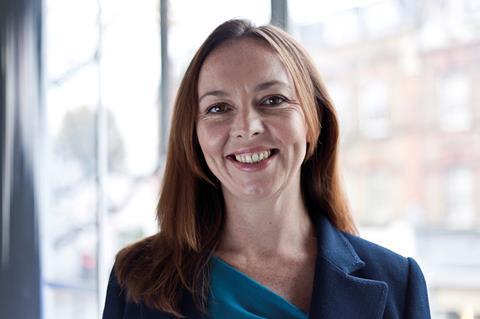Partner and co-founder, London

Peter Burgess and I founded Burgess Mee Family Law in 2013. We were motivated to provide a top level of service but at a lower cost than firms in the City, where we’d previously worked. By setting up our own firm just outside central London we could offer a more affordable service, with the autonomy to take on the type of work we wanted (in my case more children work) and to work in the style we wanted, such as more advocacy (I was at the High Court as an advocate shortly after launching the firm).
Attracting work was not difficult. We were fortunate that our City firm peers had a lot of potential new clients who couldn’t afford their fees, so they would send clients our way – more than once in a taxi from their offices. Other aspects were more difficult. We needed the resources to provide a premium service so we had to grow the firm quickly, recruiting administrative staff as well as fee-earners, while managing a full caseload.
The motivation behind our sister website, The Happy Co-Parent, was to offer the public free specialist advice on successful co-parenting, learned through our years of working with families. We don’t advise on topics outside our specialism. There is a section called ‘Ask the Expert’ with video interviews involving therapists, psychiatrists, a social worker, mediators, and divorce and parenting coaches at the forefront of family law. We also have a section called ‘Ask Sheila’ where the public can ask questions of a leading family therapist and mediator, as well as ‘Co-Parenting Scenes’ where actors play the part of parents in mediation sessions dealing with common co-parenting issues. I give my views on the dynamic between the parents and how they can be helped to reach agreement.
'It’s essential that a client’s family solicitor is able to be emotionally detached from the issues in the case so that they can give consistently objective advice'
Drive Forward helps young people who have left foster or residential care to achieve their potential in employment. I was inspired by a care-experienced young person in the audience at a lecture I attended. He explained how work opportunities given to him through Drive Forward helped him to achieve a job in the diplomatic service. I contacted the charity to offer our help to care-experienced young people who may not otherwise have the opportunity to obtain work experience in a law firm. During their time with us, the young people have attended conferences with QCs, court hearings, client meetings, undertaken drafting and research, and taken part in mentoring workshops to brainstorm challenges they may face in embarking on a legal career. We also provide help with CVs and advice on how to get into different areas of law.
The Divorce Dissolution and Separation Act is long overdue and imminently sensible in this modern world. It means there will no longer be fault-based divorce and couples don’t have to wait for two years after separation (or five years if one party doesn’t consent to a divorce) for a non-fault based divorce. Couples will also be able to jointly apply for a divorce, unlike before. The new law should remove much unnecessary stress, time and legal costs for couples in relation to the divorce itself. That may encourage a less confrontational approach in negotiating the financial aspects of the breakdown of the marriage. Less acrimony between a couple on divorce should reduce the impact on any children too.
People often think that abusive or unscrupulous behaviour by one party during a marriage will affect the division of assets on the breakdown of the marriage. But in the vast majority of cases the court doesn’t make punitive financial orders as a result of behaviour during the marriage. Another common misconception is that if one party contributed more financially to the family home then that financial contribution will be returned to that party on divorce. This usually isn’t the case because the family home is considered a joint asset regardless of the source of funds; the starting point is a 50/50 split of the value of the net equity and the court might depart from an equal share if one party needs more capital to rehouse themselves or children.
It’s difficult sometimes not to take work home. However, it’s essential that a client’s family solicitor is able to be emotionally detached from the issues in the case so that they can give consistently objective advice. I’ve always had bosses with whom I could talk about the difficult emotional nature of the cases and we have an open, supportive environment in our firm too.































No comments yet